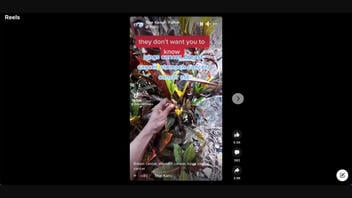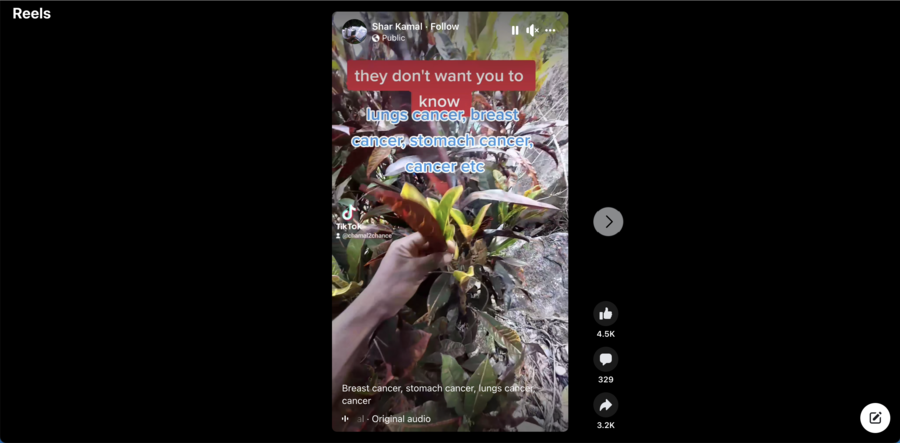
Does the pavana leaf treat cancer? No, that's not true: A surgical oncologist told Lead Stories that there is no medical evidence supporting that claim. The FDA warns consumers to be wary of products that claim to treat cancer.
The implied claim appeared on Facebook (archived here) where it was published on March 27, 2023, with the on-screen text reading, "they don't want you to know lungs cancer, breast cancer, stomach cancer, cancer etc." The video opened with a man saying:
Now hear what people, this here is the pavana AKA croton.
This is what the post looked like on Facebook at the time of writing:
(Source: Facebook screenshot taken on Mon Apr 3 14:13:37 2023 UTC)
The narrator advises his audience to dry the pavana leaf and steep it in hot water to make a tea for anyone with lung cancer, breast cancer and stomach cancer. No sources are cited in the video or in the caption.
Dr. Joshua Mammen, a surgical oncologist at the University of Nebraska Medical Center, told Lead Stories in a April 3, 2023, email that there is no evidence that ingesting the pavana leaf as a whole will fight or cure cancer:
The pavana or croton is one of the plants that is being actively studied. Several substances have been isolated from the plant that might help to fight cancer. Of note, though, croton oil appears to increase the risk of some skin cancers.
Currently, there is no medical evidence that ingesting the pavana leaf will cure cancer."
In an April 3, 2023, email from the FDA, a spokesperson sent us a link to an article on deceitful claims about products claiming to treat or cure cancer. Red flags include: the product claims it treats all forms of cancer, the product claims to be more effective than chemotherapy, and the product collectively kills cancer cells.
More cancer fact checks from Lead Stories can be found here, here and here.


















